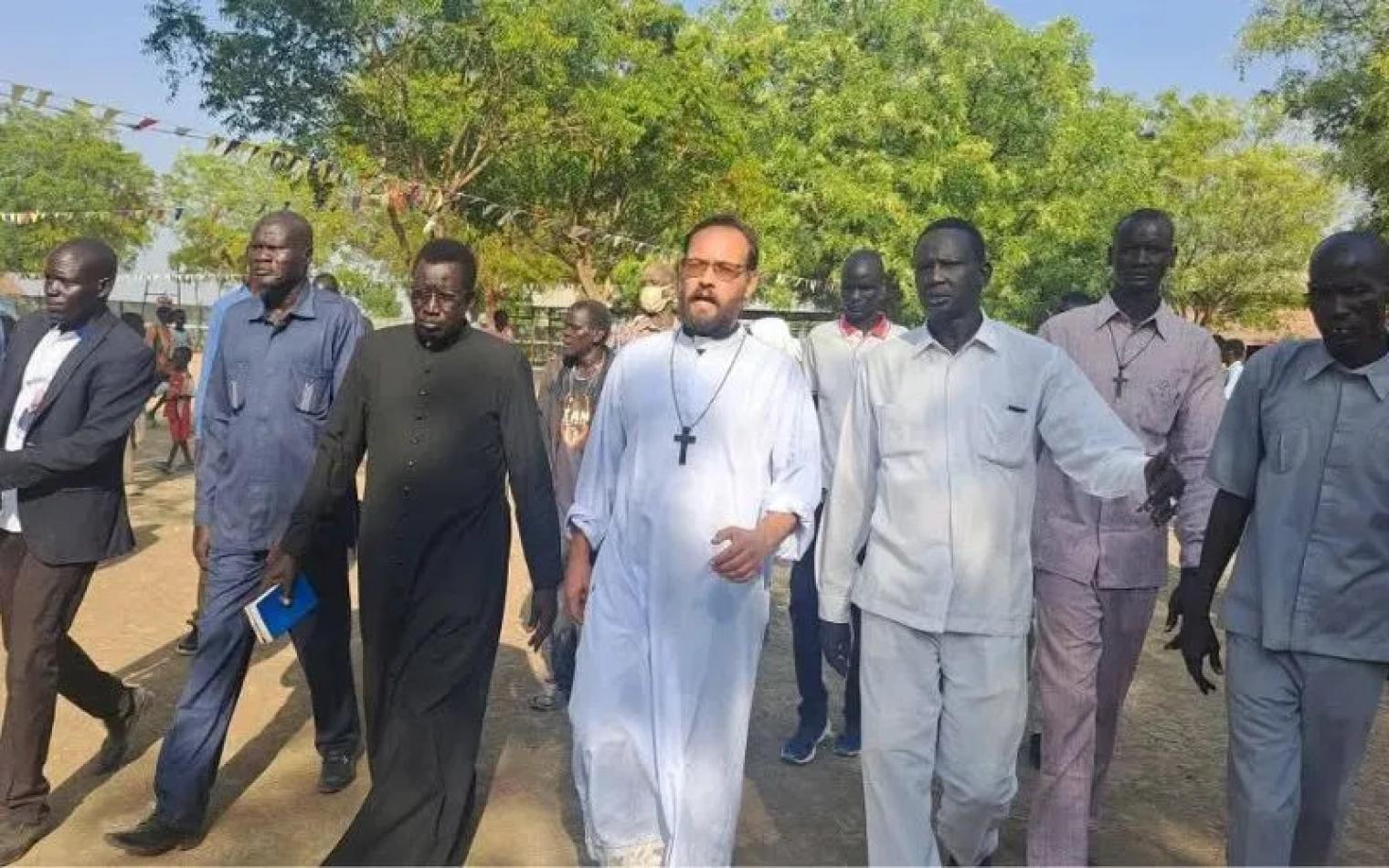Daniele Comboni
Missionari Comboniani
Area istituzionale
Altri link
Newsletter
Monday, February 10, 2025
Mgr. Christian Carlassare, Bishop of the Catholic Diocese of Bentiu in South Sudan, has reminded the leaders in the country of their critical role of fostering nonviolent approaches to conflict resolution and promoting peace in society. In his speech at a peace dialogue that was organized to explore ways to reconcile warrying communities that are served by the Diocese, Mgr. Christian said that leaders must align themselves with righteousness and justice to help build peaceful societies. [ACI Africa]
“Leaders play a key role in society to pursue peace. When the wicked are in power, the people groan. When the righteous rule, the people rejoice,” Bishop Carlassare in the first session of the peace dialogue which was concluded on February 5. The Italian-born Catholic Bishop added, “Leaders must belong to the people, pay attention to their needs and demands, and understand their thoughts and minds. However, leaders must not be led by the popular will just to win consensus.”
“Leaders have a great responsibility,” the member of the Comboni Missionaries said, and added, “They must lead people by forming their consciences and offering a new vision that peace is always possible; that only non-violent means can solve conflicts; and that only social solidarity can bring sustainable development and real prosperity.”
The Catholic Diocese of Bentiu serves a troubled region. It brings together the Dinka people in Ruweng Administrative Area and the and Nuer people in Bentiu, in South Sudan’s Unity State. These two communities have always been in conflict with each other. The just concluded peace dialogue was organized by the United Nations Mission in South Sudan (UNMISS) in collaboration with the South Sudanese civil society to explore ways to reconcile the two communities.
The conference that the United Nations Mission in South Sudan (UNMISS) organized in collaboration with the South Sudanese civil society was aimed at reconciling the two South Sudanese communities that have been in constant conflict. South Sudan, which is the world’s youngest country, and is home to more than 60 ethnic groups has been unstable since it gained independence from Sudan in 2011. The two largest ethnic groups are Dinka, which accounts for more than one-third of the country’s population, and Nuer, which is about half that size.
A considerable amount of the violence in South Sudan stems from conflicts between those two ethnic groups, which vie for political power in the country as well as access to resources like water and cattle. Tensions between the two groups sparked a six-year civil war in 2016. Although a peace deal was reached in February 2020 through the creation of a unity government, violence still flares up, particularly through cattle raids.
In his January 31 address, the Bishop who had been ministering in Malakal Diocese since his arrival in South Sudan in 2005 before he was appointed Bishop for Rumbek Diocese in March 2021 highlighted dialogue as a cornerstone for peace and social cohesion. Bishop Carlassare said violence results in defeat and stems from the lack of mutual respect and efforts to impose narrow interests over the common good.
The Bishop who started his Priestly Ministry in South Sudan’s Catholic Diocese of Malakal following his ordination in September 2004 noted that tensions arise when certain groups prioritize their advantage over others, leading to divisions. In his address, Bishop Carlassare also spoke on the importance of forgiveness in overcoming grievances.
Referring to the Gospels of St John and Mathew on love, the Catholic Church leader said enmity prevents the building of social cohesion, which requires forgiveness, kindness, and a commitment to peace. The Bishop called on the people to work toward unity and peace. “Be humble and kind. Be patient. Bear with one another in love. Make every effort to keep unity through the bond of peace,” he said referring to St. Paul’s letter to the Ephesians.
He urged individuals to avoid negative actions and words that could disrupt peace in their communities and emphasized that preserving unity and peace demands consistent effort, humility, and patience. The Bishop further called for a collective journey toward fraternity and reconciliation to build a society rooted in love and solidarity.
Silas Isenjia – ACI Africa




